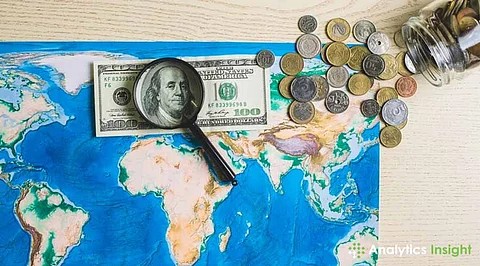

In recent years, global inflation has emerged as a critical challenge, affecting economies worldwide. Inflation, characterized by the persistent increase in the prices of goods and services, thereby diminishing purchasing power, has a profound impact on commodity prices and influences numerous sectors. Understanding this relationship is crucial for businesses, investors, and consumers alike.
Commodities are basic, buyable, and tradeable items. They are usually used as raw materials to make other products or services. Metals such as copper and aluminium, agricultural products such as wheat and corn, oil, gold, and natural gas are all common examples.
Inflation has several effects on commodity prices. The cost of manufacturing many goods rises alongside inflation. This might be attributed to increased labor, raw materials, and transportation costs. To compensate for growing costs, firms typically hike customer pricing. As a result, when inflation is strong, commodity prices tend to rise.
The currency's value also affects commodity prices. Inflation often reduces a currency's value. When the value of a currency falls, it costs more money to buy the same number of things. For example, if the US dollar falls owing to inflationary pressures, international purchasers will pay more for dollar-priced items such as oil. This might raise worldwide demand and pricing.
In recent years, several factors have contributed to rising global inflation rates. The COVID-19 pandemic disrupted supply chains worldwide, leading to shortages of essential goods and increased costs. As economies recovered, pent-up demand soared while supply battled to keep up. This mismatch has caused prices to rise in a variety of areas.
Additionally, geopolitical conflicts have influenced inflationary pressures. Conflicts can interrupt supply networks and cause market uncertainty, increasing commodity prices like oil and gas. For example, wars in oil-producing countries can cause fluctuations in crude oil prices, affecting transportation costs and consumer goods.
Energy Prices: Natural gas and oil prices may increase during inflation due to increased production costs and geopolitical concerns. Higher energy prices may increase commodity transportation costs, raising consumer prices even further.
Agricultural Products: Food costs are heavily affected by inflation. Rising fertiliser, seed, and labor costs may result in increased crop prices, such as wheat and maize. Furthermore, poor weather conditions may compound these problems by lowering agricultural output.
Metals: During inflationary situations, investors seek safe-haven assets to secure their funds, and precious metals such as gold usually witness price spikes. Gold has traditionally been considered a hedge against inflation since its value rises when currency values fall.
Rising commodity prices due to inflation can affect consumers in a variety of ways. Higher food and energy prices might strain household budgets, resulting in less expenditure on non-essential things. Businesses also face issues, as rising manufacturing costs may force them to raise prices or reduce investments.
Understanding the relationship between inflation and commodity prices is critical for investors seeking to make sound decisions. Commodities can provide a buffer against inflation; nevertheless, market volatility necessitates cautious consideration.
Global inflation profoundly impacts commodity prices, influencing everything from energy costs to food supplies. As inflation rises due to factors like supply chain disruptions and geopolitical crises, understanding this relationship becomes increasingly important for consumers and businesses. Individuals who keep track of these trends will be able to navigate the economic landscape better and make informed decisions regarding their spending and investing strategies.
